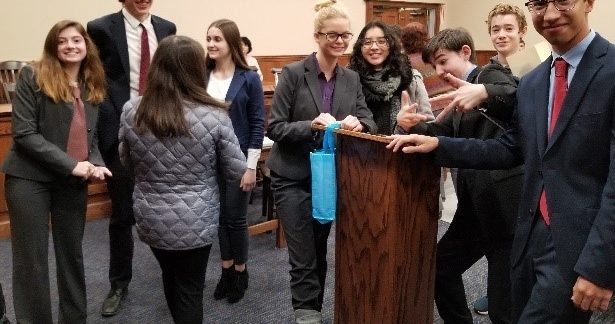An IEEE NJ Coast Section SIGHT Group Project
One third of people over age 65 have hearing loss; five percent of the population of the world or 360 million people have disabling hearing loss while the majority live in developing countries.
In 2020 FDA opens the market to non-prescription solutions for hearing assistance devices. We provide mainstream hearing augmentation, making the solutions available to any networked device and addressing a variety of important issues of society. The world’s production of hearing aid devices only meets about 10% of the need so there’s a great opportunity to provide a Humanitarian Technology solution.
Our team improves communication for people with hearing loss using mainstream open source cloud connected technologies including mobile phones, inexpensive devices, and open source apps. Along with our technical designs and prototypes, we have joined two IEEE Standards Groups to promote Humanitarian policies in Standards. We will promote Standards that include low cost connectivity with hearing assistance devices. At present, many systems offer expensive proprietary solutions, even when using so-called Standard connections.
We plan a Virtual Reality Simulator and Learning System to improve understanding of the Americans with Disability Act, the specific accommodations for the Justice System, and needs of elders. One important method is by helping people experience how hearing-impaired people hear the world. We plan a Multi-user Captioning System for use in groups and meetings so those with hearing loss can read captions of multiple speakers even in a noisy room. At present, most accommodation systems enable only one speaker to be heard.

During our kick-off year we formed the SIGHT Group and collaborated with our Section’s PACE, Antenna Propagation/ Electromagnetic Compatibility/ Vehicular Technologies, Women in Engineering, Life Fellows and Life Members, and other Chapters and Affinity groups, as well as professors at Stevens Institute of Technology to gather momentum. We were hosted by the Nyack Mock Trial Team, with activities sketched and illustrated above, members of the Rockland County Bar association, and others, who were willing to enable our volunteers and participants to shadow activities and attend events. We were able to network with advisors Professor Christopher Vogler, PhD, at Gallaudet University, Derek Davis, Esquire, at Harvard University Law School, and a number of other key players who improved our understanding of issues leading to disparity in the Justice System.

We held a series of meetings, technical and social, mapped out a technology and activity plan, created some demos and content, and held an Event. During several meetings, we interviewed people with hearing loss, technical expertise, legal expertise, and shared information about IEEE Humanitarian Activities, and the United Nations Sustainable Development Goals, especially the ones upon which we have focused: 4 Quality Education, 5 Gender Equality, 10 Reduced Inequalities, 16 Peace Justice and Strong Institutions.

The Mock Trial Team is pictured above following a successful courtroom competition. During our project, we were able to share a fabulous Storytelling Video created by the Nyack Mock Trial Team, that summarizes disparity issues of which they became aware during the season. Even the Mock Trial case itself happened to depict an individual with disabling conditions who was marginalized, bringing the message of disparity in the Justice System to the attention of all participants.
Article by NJ Coast Section SIGHT group Chair Dr. Katherine August.


